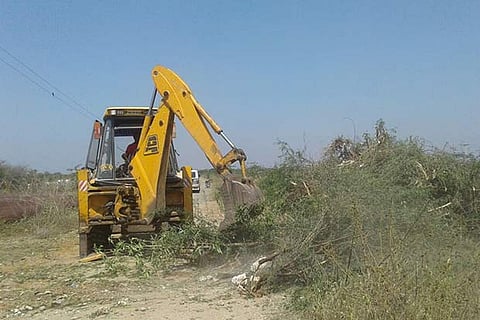

Chennai
The first bench comprising Chief Justice Indira Banerjee and Justice M Sundar before whom a PIL seeking to forebear the authorities from drastically removing the Prosopis Juliflorais (seemai karuvalam) said, “Since the matter has been referred to a larger Bench, no further action should be taken by the official respondents in the removal of the said trees.”
The bench, which posted the matter to be heard on May 11, 2017, also issued notice to the Director, Indian Institute of Technology. The petitioner A Meganathan, an advocate, submitted that the drastic eradication of ‘seemai karuvelam’ in the absence of any scientific study will have adverse impact on the environment due to the sudden loss of green cover and reduction in carbon sequestration.
Referring to recent High Court order to remove ‘velikkaathan’ or ‘seemai karuvelam’ trees from the state, the petitioner insisted that it may have implications or adverse impacts in places where many other flora and fauna co-exist along with these trees.
Citing the 630 acre IIT Madras campus which is home to spotted deer, blackbuck, monkeys, monitor lizards, star tortoises, many species of snakes and birds, butterflies and plants/trees, the petitioner said these co-exist with some ‘seemai karuvelam’ trees.
Noting that as and when these trees dry and no new trees grow in these areas is farfetched, the petitioner said that if the trees can be allowed to stand wherever and die a natural death the local and native vegetation has a higher chance of survival.
He also noted that the soil where ‘seemai karuvelam’ is grown is shown to have considerable increase in Nitrogen, Sulphur and other organic matter.
He contended that the growth of this plant requires supervision and regulation rather than eradication.
Visit news.dtnext.in to explore our interactive epaper!
Download the DT Next app for more exciting features!
Click here for iOS
Click here for Android